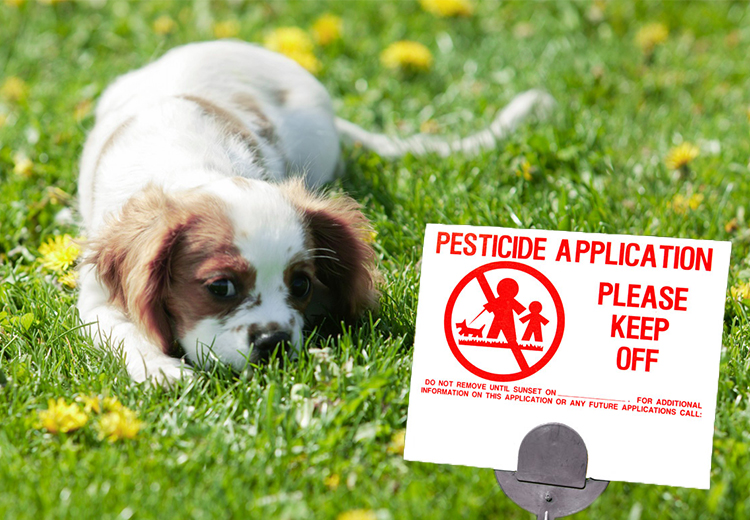No matter how much you try to avoid them, pesticides are lurking everywhere. They are in our food, our water and in the air. As much as we are exposed to pesticides, our dogs suffer even more exposure because they are lower to the ground and less apt to make sure their food is organic and their water is filtered before consuming it.
Laboratory studies show that pesticides can cause health problems, such as birth defects, nerve damage, cancer and other effects that might occur over a long period of time. Some pesticides also have unique neurotoxic health effects on growing puppies and children.
The key to minimizing the damage from pesticides is to limit your dog’s exposure and helping him detoxify and remove these harmful products from his body.
Here are a few tips to help your dog overcome toxic pesticide overload.
1. Milk Thistle
Milk thistle has been safely used for years to help the liver detoxify and repair itself. The tincture form is the best to use for dogs as it may be digested more readily than the dried herb. The typical recommended amount to feed is 1/4 tsp per 20 pounds.
2. Adding These Herbs
There are other herbs that can be combined with milk thistle to fight toxicity. These include dandelion, burdock, yellow dock, red clover, Oregon grape and turmeric.
3. Beneficial Bacteria
A properly functioning gut with balanced intestinal flora will bolster your dog’s immune system and help him efficiently clear ingested toxins out of his system. Look for soil based probiotics like Primal Defense instead of dairy based products.
4. Proper Nutrition
The faster food moves through the digestive tract, the less likely it is for toxins to be absorbed into the body (not to mention harmful bacteria). Kibble and carbohydrate-laden diets require a change in the pH in your dog’s stomach and slow digestion down. A raw meat diet will move through his digestive tract in about half the time – and meat is less likely to be laced with pesticides than grains and vegetables.
5. Exercise
Regular exercise and panting will increase blood flow through your dog’s body and this will help expel toxins. Exercise will also help control his weight. Weight control is important as fat cells tend to store toxins.
Keeping your dog healthy involves more than just a healthy diet. Limiting his exposure to avoidable pesticides and helping him to detox on a regular basis will help decrease his toxin load and lessen the harmful effects of pesticide exposure.
